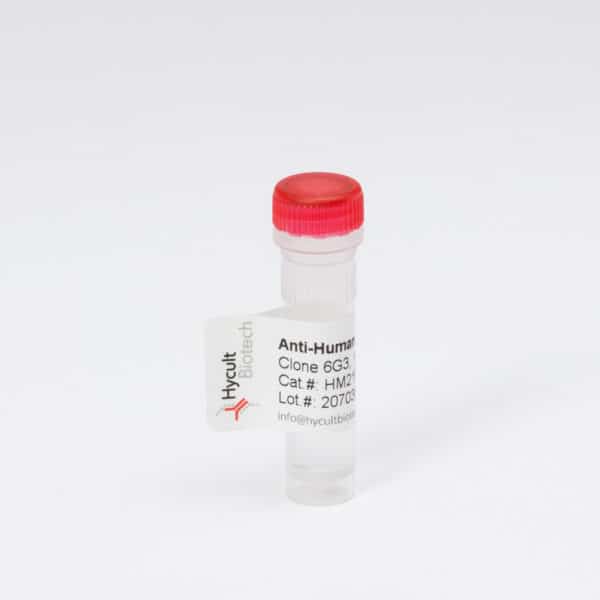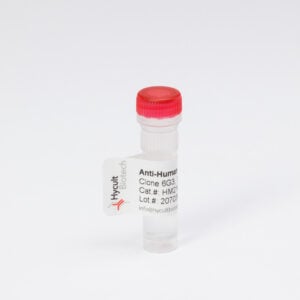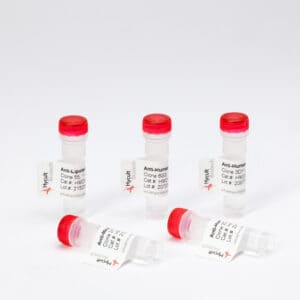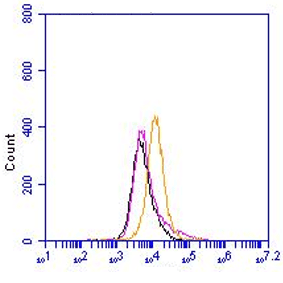CD59a, Mouse, mAb 7A6
€133.00 – €368.00
The monoclonal antibody 7A6 (previously known as mCD59.3) recognizes mouse CD59a, a potent inhibitor of the complement membrane attack complex (MAC) action. CD59 regulates the formation and function of the lytic C5b-9 complex by binding C8 and preventing the unfolding and membrane insertion of C9 and by binding C9 and restricting its polymerization.CD59 is a small (18 – 25 kDa) molecule, linked to the cell membrane through a glycosyl phosphatidylinositol (GPI) anchor and comprising 77 amino acids with a single N-linked carbohydrate group at Asn-18. Analogues of CD59 can be found in all species with similar structures and sizes. In contrast to all other species, mice have two genes encoding a CD59a and a CD59b protein. These two molecules are 63% identical at the amino acid level and share all major structural features. CD59a is broadly distributed on endothelia, erythrocytes, platelets and on numerous other cell types in organs, a distribution pattern resembling that of CD59 in other species. Expression of CD59b is restricted to germ cell elements in the testis and mature spermatozoa. Both CD59a and CD59b inhibit human and rodent complement with similar efficiency. CD59 may be involved in rheumatoid arthritis, motor nerve injury in the Guillain-Barré sydrome and in other diseases where defective inhibition of complement activation on self tissue is involved. Furthermore, CD59 may play an important part in abrogating the effects of complement attack in renal disease. Its presence and protective effect have already been demonstrated on human renal cells.





